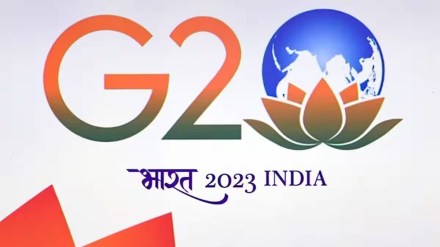Amidst the global shift towards eco-friendly economies, India has emerged as a leading force, guided by PM Modi’s LiFE plan. Taking charge of the G20 presidency since December 1, 2022, India brings a sense of hope and determination to tackle pressing challenges like Covid-19, economic uncertainties, and climate issues. The presidency’s core objective is to foster unity among nations, nurturing a shared commitment to crafting a brighter tomorrow. Rooted in the theme “Vasudhaiva Kutumbakam” (One Earth, One Family, One Future), India’s dedication to healing the planet and fostering collaboration shines through, offering a beacon of hope for the times ahead.
Switching gears to the aviation sector, the demand for sustainable aviation fuel (SAF) stands as a telling reflection of the global drive to reduce carbon emissions. As governments worldwide adopt stricter carbon reduction targets for air travel, the aviation industry faces a significant challenge: ramping up SAF production.
“Honeywell Aerospace stands as an unwavering ally in India’s pursuit of sustainability. Our solutions epitomize the fusion of innovation, environmental consciousness, and technological prowess, positioning us at the forefront of an aviation revolution that’s set to shape a cleaner, greener future for all,” says Ashish Modi, President, Honeywell India.
This challenge, however, encounters a roadblock in the form of limited accessible feedstocks for SAF production.
Currently, according to Ashish Modi, President, Honeywell India, fats, oils, and greases from restaurant and food waste serve as the primary sources for SAF, resulting in significantly lower greenhouse gas emissions compared to traditional fossil fuels. Despite the potential, SAF constitutes less than 1% of aviation fuel production, highlighting a critical concern – the inadequate supply of industry feedstocks to meet the growing demand.
According to him, the global SAF market is poised for remarkable growth, projected with a 60% Compound Annual Growth Rate (CAGR) from 2022 to 2032. Initiatives like the International Civil Aviation Organization’s CORSIA and India’s sustainable aviation fuel roadmap are propelling the accelerated adoption of SAF. “Closer to home, India’s Ministry of Civil Aviation and Ministry of Petroleum and Natural Gas are collaboratively charting a roadmap for sustainable aviation fuel, aiming to establish a foundation for reducing carbon emissions within the aviation sector.”
Contribution of Honeywell India towards SAF
At the forefront of this transformative movement stands Honeywell, with its groundbreaking Ecofining technology. This innovation has been pivotal in advancing global aviation’s battle against greenhouse gas emissions, achieving ambitious SAF production targets, and meeting the rising demand for cleaner fuels. By harnessing abundant feedstocks like ethanol, Honeywell’s Ecofining technology plays a crucial role in shaping a sustainable future for aviation.
Responding to Financial Express Online, he says, “Honeywell Aerospace’s solutions embody a steadfast commitment to aligning with India’s resolute sustainable aspirations. Drawing upon our rich heritage of innovation and expertise, our products stand as powerful tools that empower our customers to significantly diminish their environmental impacts. Our offerings encompass an array of cutting-edge technologies poised to shape a greener and more sustainable aviation landscape.”
Adding, “At the forefront of our technological endeavours is our capability to engineer green fuels, hydrogen-oriented technologies, carbon capture, and energy storage solutions. These innovations, available now and accessible to customers across the globe, hold the potential to usher in a transformative era in aviation by substantially reducing its carbon footprint.”
Carbon Neutrality
“In our relentless pursuit of carbon neutrality, we embrace a philosophy of continual evolution and optimization. This entails a comprehensive assessment of our strategies, accompanied by ingenious reinventions, all aimed at minimizing our ecological footprint. We proactively scrutinize carbon emissions across our supply chain, reflecting our deep-seated commitment to creating a lasting and positive environmental impact,” he explains.
“A cornerstone of our sustainable commitment lies in the realm of sustainable aviation fuel (SAF). Recognizing that aircraft emissions contribute around three percent percent of global carbon dioxide emissions, we understand the compelling need for forward-looking solutions. With projections pointing toward a staggering 50 percent increase in impacts within the next two decades, primarily due to the anticipated surge in passenger numbers to 10 billion by 2050, the urgency to adopt sustainable alternatives becomes paramount.”
